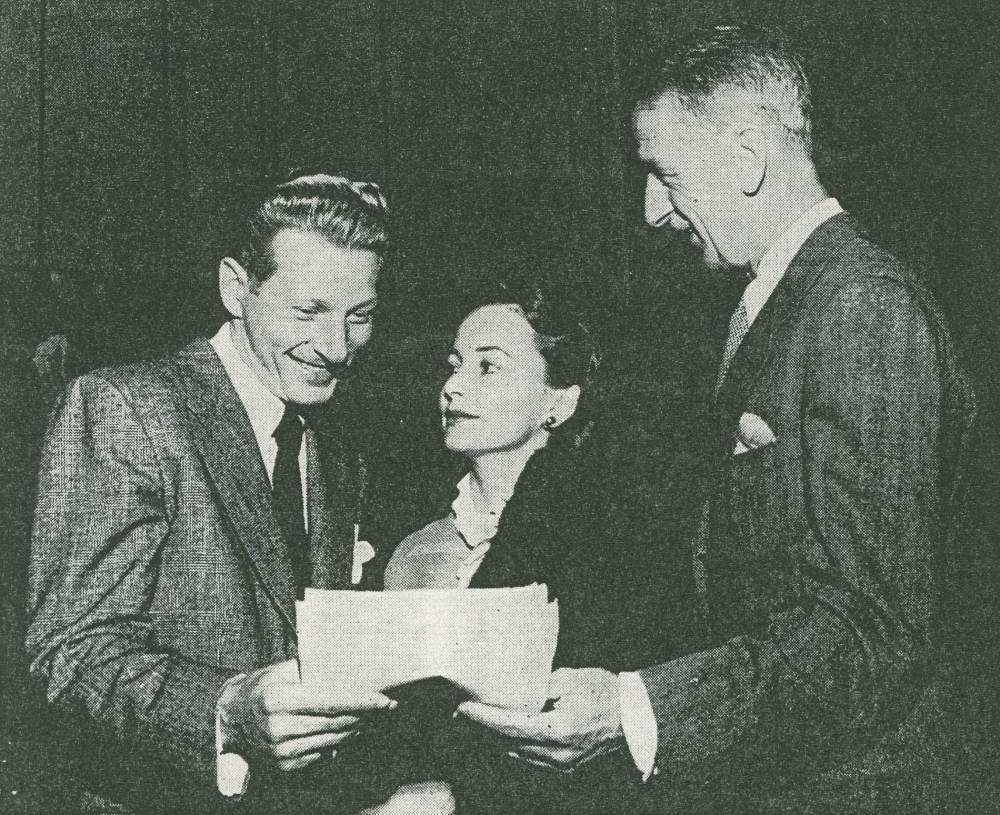Lead by the likes of Katharine Hepburn, Olivia de Havilland, Danny Kaye, and Norman Corwin, the organization that began its life as the Hollywood Democratic Committee (HDC) was comprised of writers, producers, actors, musicians, and other Hollywood talent hoping to make a difference in the political arena. Formalized in 1943 with a constitution and plan of action, the HDC’s first major political efforts centered on the reelection of Franklin Delano Roosevelt in 1944. Following FDR’s success against challenger Thomas E. Dewey, the HDC moved on to other legislative battles in support of the New Deal administration as well as issues including price controls, international cooperation, atomic peace, civil liberties, freedom of speech and organization, and veterans issues.
The records in the collection came from George Pepper, the organization’s life-long executive secretary. Consisting of copious records of the organization’s day-to-day operation, including meeting minutes, correspondence, fundraising details, and membership lists, the collection also contains subject-specific records on the dozens of political issues that populated its agenda. Much of the organization’s action took place through writing campaigns, radio shows, public performances, and conferences. Scripts, speeches, flyers, petitions, and publicity materials are thus often as plentiful as reports on legislative strategy and telegram correspondence with local, state, and national leaders ranging from Albert Einstein to former Secretary of the Treasury Henry Morganthau. Taken together, the collection’s evolving membership rosters (which read like a Who’s Who of the Hollywood elite) and robust legislative agendas serve as a reminder that star-studded politics has a considerable lineage in the U.S.
A Note on Names
Perhaps taking their cue from their favorite president’s New Deal program, the HDC cooked up a little alphabet soup of its own, changing its name four times over its short lifespan. In 1946, the HDC affiliated with the similarly-minded east-coast organization Independent Citizens Council of Arts Sciences and Professions. Changing its name to HICCASP, it remained an independent organization with its own leadership and agenda, a strategy it maintained throughout its later affiliations as well. In an attempt to create a larger coalition of progressive forces before the 1948 elections, HICCASP merged with the National Council of the Progressive Citizens of America in 1947 and renamed its chapter the Arts, Sciences and Professions Council of the Progressive Citizens of Southern California (ASP-PCA). After state PCA chapters began merging with third party organizations in the hopes of electing Henry Wallace president, ASP-PCA became part of a newly formed National Council of Arts, Sciences, and Professionals (NCASP), often referring to its own chapter as H-ASP. Throughout its name changes, the organization maintained continuity along several lines: its progressive legislative agenda, its distinctiveness as a local Hollywood and Southern California organization, and its identity as a professional organization linked to the arts and sciences. As several of the exhibits on the right attest, the HDC’s professional identity throughout its existence would help shape the course of its progressive agenda.
This featured collection was researched and written by UW-Madison doctoral candidate and Jarchow fellow Kit Hughes. Thanks to Stephen Jarchow, Vance Kepley, Maxine Ducey, Heather Heckman, and Michael Trevis.

